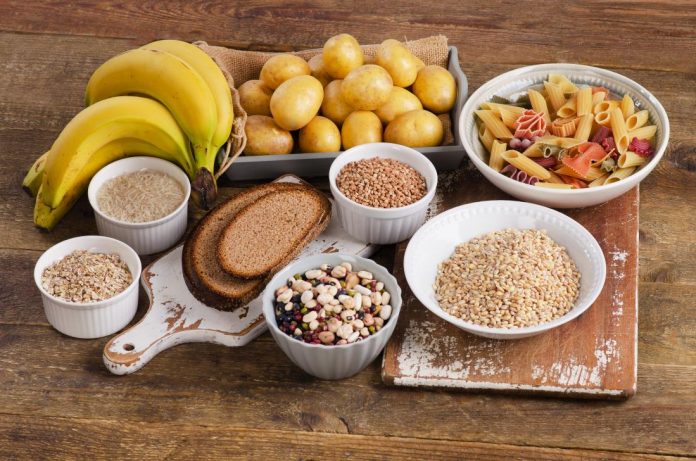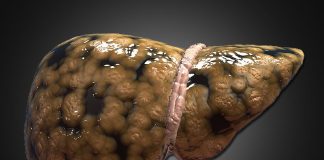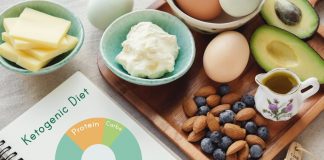The brand new episode within the fierce clinical debate over the low-carb eating regimen shows it helps humans burn greater calories and keep weight off.
It’s possibly the most contentious query inside the weight-reduction plan wars: How an awful lot do carbs actually count number on the subject of weight loss?
On one aspect are a cadre of respected researchers; the journalist Gary Taubes; and Atkins, Zone, and keto food regimen devotees who passionately argue that if we may want to just pry ourselves faraway from the pasta, bagels, and cookies, our weight struggles might be over.
On the opposite side are equally professional researchers and nutritionists who haven’t offered into the low-carb claims. They rather argue that most research show low-carb diets aren’t higher than every other eating regimen in relation to retaining weight off.
It’s a rich and active debate. And on Thursday morning, Dr. Oz jumped into the fray, acting at the Today display to focus on a brand new look at displaying that cutting carbs can help people “lose weight, now not feel discomfort even as doing it, and sustain it,” he said.
The take a look at, led through researchers at Boston Children’s Hospital, appears inside the journal BMJ and is arguably one of the maximum rigorous eating regimen research ever achieved. While it didn’t display exactly what Dr. Oz cautioned, it’s far an essential little bit of evidence on this debate — and but every other reminder of the exquisite trouble of proving some thing in terms of nutrients.
The carbohydrate-insulin hypothesis
For the take a look at, which cost $12 million to complete, researchers wanted to study whether or not preserving weight reduction over 20 weeks might be less difficult on a low-carb, moderate-carb, or high-carb food plan. But the question they were simply trying out is whether or not the form of energy we devour, now not just what number of calories, subjects when it comes to our frame weight.
Some weight loss program and nutrients researchers argue it’s the quantity that subjects, and if we consciousness on reducing normal calories, we’ll drop the kilos. Others agree with calorie first-class topics hugely.
The major medical version in that latter camp is the ”carbohydrate-insulin speculation,” which Taubes, Harvard professor David Ludwig (an writer on the brand new paper), University of California San Francisco’s Robert Lustig, and others have extensively promoted. It shows that a weight loss plan heavy in carbohydrates (specially subtle grains and sugars) ends in weight benefit due to a particular mechanism: Carbs drive up insulin inside the frame, inflicting the body to maintain directly to fats and suppress calorie burn.
According to this hypothesis, to shed pounds and keep it off, you want to reduce the variety of carb calories you devour and replace them with fats energy. This is meant to force down insulin stages, ratchet up calorie burn, and help fat melt away.
The new paper is the satisfactory check of that hypothesis in “loose-dwelling” participants — folks that aren’t limited to a clinic ward or metabolic chamber for the purposes of a look at.
The new low-carb take a look at, explained
The researchers, from Boston Children’s Hospital, Harvard Medical School, and different universities, recruited 234 human beings and primary had them try to lose about 12 percentage in their body weight over 9 to ten weeks.
They did this because we understand that the general public can lose weight on any kind of diet — however the difficult component is preserving that weight off. And the researchers desired to tease out whether a low-carb weight loss program that might assist humans with that hard 2d step via, because the carbohydrate-insulin model indicates, by means of having them burn extra energy.
Of the 234 people who started out the examine, 164 done the target weight loss — which means they had been equipped to enter the following and maximum important step within the trial.
The final 164 look at individuals were then randomly assigned to high-carb (60 percent), mild-carb (40 percent), and coffee-carb (20 percent) diets and followed for 20 weeks, in the course of which era they have been fed each snack and meal. Their diets were additionally cautiously calibrated to ensure they had been keeping their new body weight.
At the 20-week point, the consequences had been pretty first rate: The fewer carbs someone ate, the extra calories they burned — and, the common sense goes, the less difficult it’d be to keep their weight off. So people on the low-carb food regimen burned greater than two hundred extra calories every day, whilst people on the slight-carb weight loss plan burned about an extra 100 energy in keeping with day, and people on the high-carb weight-reduction plan didn’t burn any extra energy.
“This feeding examine, as the longest and biggest so far, gives support for the carbohydrate-insulin version and makes a credible case that all energy aren’t metabolically alike,” stated one of the examine authors, Harvard’s Ludwig. “These findings increase the opportunity that a focus on carbohydrate restriction may match better for long-time period weight reduction maintenance than calorie limit.”
Are those consequences relevant to most of the people?
Stanford researcher Christopher Gardner, who became not concerned within the research, informed me he notion it became an “stylish have a look at,” with effects well worth paying attention to. “It shows how in the long run [a low-carb diet] can sell or inhibit the preservation of that weight loss.”
But Gardner additionally referred to that the findings might not but be applicable to the majority.
In most weight loss program studies, in which human beings aren’t fed each calorie with the aid of researchers, the low-carb diet performs approximately similar to different diets with regards to weight reduction. In different phrases, while you simply ask people to paste to a low-carb weight loss program for weight reduction, they lose about the identical amount of weight as people following better-carb diets. This isn’t a knock at the have a look at, but at the reality that researchers don’t yet recognise the way to get humans to observe any food plan over the long time, except they’re feeding them.
“If you prove a mechanism works however you may’t get human beings to do it,” Gardner added, “it gained’t assist.”
Importantly, different properly-controlled assessments of the low-carb insulin speculation, where people are installed metabolic chambers, have failed to expose low-carb diets result in a dramatic increase in calorie burn and weight loss.
But there are issues with the ones research, too: They particularly looked at weight loss (no longer weight preservation) and they weren’t run for as long as this new one. So it’s possible that more calorie burn handiest absolutely kicks in after 10 weeks, which is what the brand new look at found.
Another methodological query about the brand new examine
Other researchers deeply invested within the low-carb weight loss plan debate raised any other question about the new research. It’s pretty nerdy, however interesting, so bear with me.
Kevin Hall, an obesity researcher at the National Institutes of Health who has studied low-carb diets, pointed out that the researchers used a method known as doubly categorized water to degree calorie burn before and at some point of the take a look at. This includes giving observe individuals a pattern of water that carries (or is “categorized with”) sorts of the elements deuterium and oxygen-18. Since they’re now not normally found inside the body, researchers can decide someone’s metabolic rate — how a whole lot energy they’re burning each day — by means of tracking how fast they’re expelled through urine sampling.
Doubly classified water is the gold-popular way of measuring energy expenditure in “unfastened-dwelling” topics, i.E., people who aren’t in a metabolic chamber. But there’s a hassle with the manner it became used in this paper, Hall said.
When human beings have just misplaced weight, or their diets are transferring, doubly classified water is much less dependable. In their authentic take a look at protocol — or assertion of reason before the look at become finished — the researchers addressed that: They said they would use the degree taken before the run-in weight loss section as their baseline. People would be weight strong then, and Hall said, “That’s wherein doubly categorized water has been verified.”
But the researchers modified that endpoint due to an error, and as an alternative made their baseline the beginning of the food plan randomization — a trade they disclosed within the have a look at, to their credit score.
The trade, but, “introduced noise into that size,” Hall said. Because people had already lost weight and their diets were converting, doubly categorized water is probably a much less dependable manner to estimate energy expenditure. “And they don’t record within the study what their records would appear to be if they used the pre-weight reduction measurement.”
Hall took the pre-weight reduction measurements, which were reported in the take a look at, and ran the numbers himself for a presentation at the latest Obesity Week conference. He located the effect of calorie burn at the low-carb diet might were plenty smaller had they used that degree as their baseline: fewer than one hundred extra energy consistent with day distinction among the low-carb and high-carb food regimen companies, an impact that might not be statistically tremendous.
“It’s a tour de pressure [of science],” introduced Sam Klein, a metabolism and weight problems researcher at Washington University in St. Louis. But he shared Hall’s concerns, and felt the look at came up with effects that seem inconsistent with what we understand about electricity expenditure — possibly due to the methodological problem Hall raised. “Using this pre-weight reduction baseline because the point of evaluation shrinks the effect size,” Klein summed up.
Ludwig said those critiques have been based totally on a misunderstanding, and that because this is a weight-loss renovation have a look at, using the pre-weight loss number because the baseline “might had been in struggle with that goal and brought new styles of bias.”
“It’s truthful for any scientist to elevate questions, reanalyze facts, and challenge interpretations,” Ludwig brought. “In the interest of most transparency, we published the overall facts set and statistical code in order that all people can behavior additional analyses.”
So should dieters stop eating pasta?
So again to the primary query right here: Should you avoid pasta if you want to preserve weight reduction?
If you’re harassed now, you’re right to be. Debates approximately eating regimen are becoming fierce and nitpicky. We all come to them with our biases, there are many vested pastimes at play, and it’s tough to realize what to accept as true with. Nutrition studies — that are surely impossible to do in approaches that lead to bulletproof conclusions — additionally make easy objectives: They’re clean to critique and interpret in exceptional approaches.
Outside of this new study, I haven’t found the proof for the low-carb eating regimen compelling. But perhaps I am too biased by way of my love of pasta, bread, and cake — and personal reports failing to limit my carb intake — to absolutely embrace low-carb living. (In truth, my losing weight over the long term coincided with eating more carbs than ever before.)
In my years of reporting on weight loss plan and obesity, even though, I know one factor to be authentic: The identical diets can have considerably unique outcomes for one-of-a-kind humans, and those can’t preserve weight off in the event that they’re on a weight loss plan that feels impossible.
So the nice weight loss plan, as people lots wiser than me have already stated, might be the one you could keep on with. If that looks as if a low-carb weight-reduction plan, wonderful. Maybe you can achieve greater energy-burn rewards, assuming the results of the observe maintain up. The researchers themselves referred to as for extra studies, and replication might be especially important given their effects appear to diverge with the rest of the proof base.
Either manner, Gardner stated, “I have by no means visible all and sundry disagree on much less delivered sugar and much less subtle grain. That’s an sizable a part of the American weight loss plan. And you may’t move incorrect eating a eating regimen that’s decrease in those nutrient-bad carbs.”

















